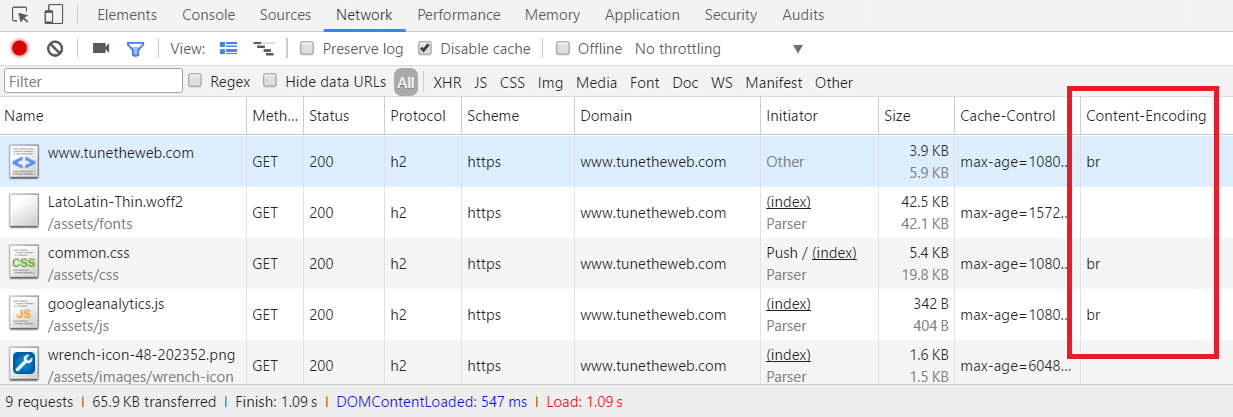20% is a lot when it is a heavy page.
I can only encourage you to look at the real numbers. It's an eye opener and might bring you some relieve in terms of the feeling of urgency/priority.
I'm not from Plesk, I don't want to talk you into anything. Just pointing out that a more detailed view at what this algorithm would actually mean to your website might make your drive less urgent.
For example let us look at a really "heavy" page like
ABC News . It's full of content. You can test this yourself and follow the math:
The source code of abcnews.go.com currently has a size of 210 KB uncompressed.
The same source code compressed by Gzip has 50 KB.
Under ideal laboratory conditions, the same source code compressed with Brotli has approx. 40 KB.
So what are we saving? We are saving 10 KB on a huge page.
Now let's do the math what Brotli is actually saving you in download time:
Assume we are on an extremely slow DSL line with only 768 KBit/s downstream. Say we can only utilize 512 KBit/s for data. This equals approximately 64 KByte/s. We know that most people are on much faster downstreams, but just for this example, assume we are on such an extremely slow connection, so that 10 KB should make a difference. I mean, even on cell phones you'll get a much higher speed, but just for the sake of trying to argue pro-Brotli, let's assume you desperately need to save these 10 KB. These 10 KB that are saved with Brotli compared to Gzip will save you 10KB/64KB/s = 0.15 s real loading time. zero point one-five seconds.
In the real world where people are usually at least getting 2 MBit/s downstream, this will be around only 0.04 s download time saved. So even if you had ten of such files, you'd still be looking at only less than half a second saved download time. But most websites don't have ten such files. Plus the browser has cached typical files like commonly used JQuery files.
In office environments with 16 MBit/s or higher, you'll save approx. a few milliseconds only. And remember, this only applies to very long source code pages. It's not even the average usage situation where people download a mix of images, source code, maybe other file types. Remember, we have looked at a really huge page with a long source code for this example. A normal web page is much smaller.
Does Brotli give you an advantage? Yes.
Does that advantage have any real world impact? No.
It's something for engineers and very, very high visitor volume sites. But it is way less than anything that users will ever notice. It is absolutely marginal, minimal. For most people this does not have any impact at all, and probably that is one of the reason why people have not been casting their vote for it on the uservoice page.




